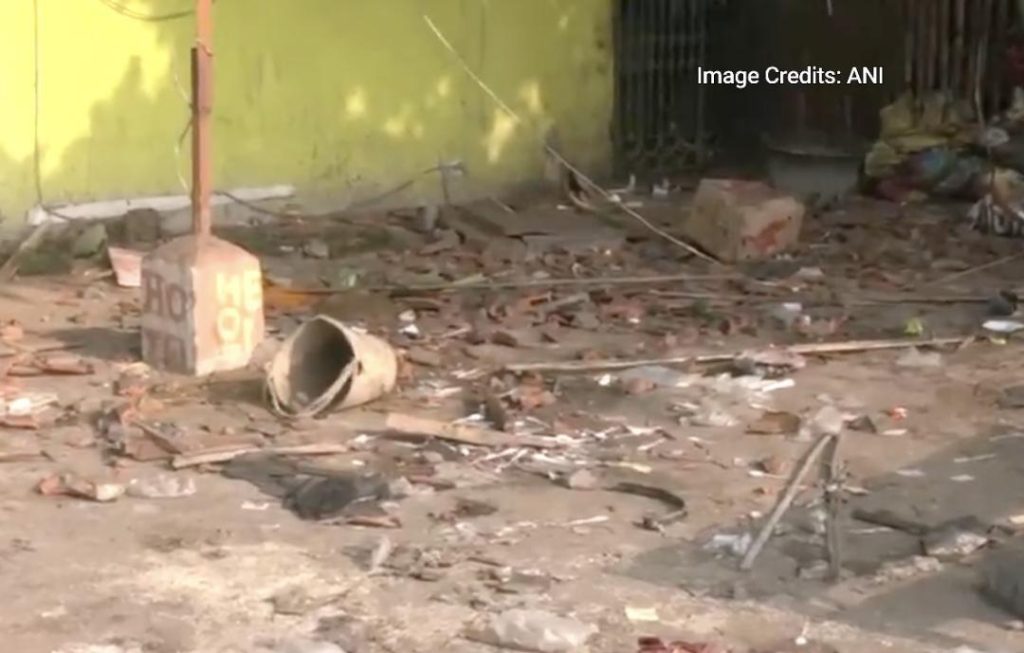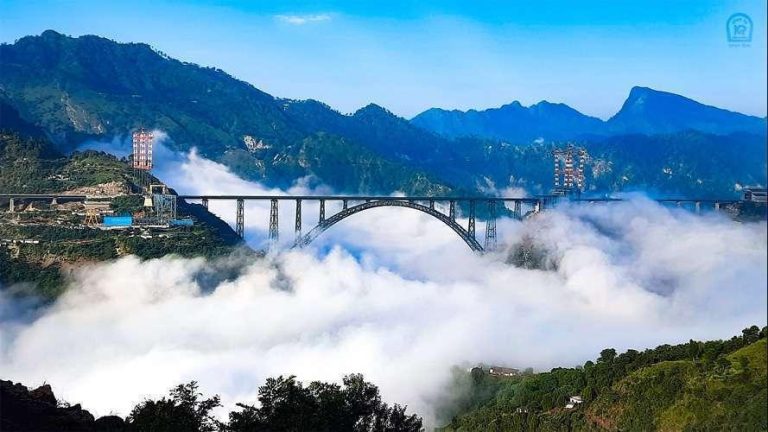
Title: 5,000 Disrupt Services & Pelt Stones at Bengal Railway Station during Protest against Waqf Act
In the midst of growing tensions and protests against the Waqf Act in West Bengal, a sense of chaos and disorder was witnessed at the Dhulianganga railway station on Friday. According to the Eastern Railways, nearly 5,000 people gathered at the station, disrupting train services and causing a significant impact on the movement of the Kamakhya-Puri Express. The incident highlights the escalating situation in the state, where protests and demonstrations have been gaining momentum.
The Kamakhya-Puri Express, which is a prominent train route connecting Assam with Odisha, was severely affected due to the blockade. The train was stuck for hours, causing inconvenience to hundreds of passengers who were traveling on board. The disruption not only affected the train’s movement but also impacted the overall rail network in the region.
Eyewitnesses reported that the mob gathered at the station around 1 pm, and soon turned violent, pelting stones at the railway authorities and damaging property. The situation was further exacerbated as the signal system at the station was also destroyed, making it difficult for the railway officials to manage the situation.
A railway guard, who was present at the scene, described the chaos and destruction caused by the mob. “Many things were destroyed, and the signal couldn’t be passed,” he said. The guard’s words paint a vivid picture of the anarchy that unfolded at the station, leaving a trail of destruction and chaos in its wake.
The Waqf Act, which was passed in 1954, is a legislation aimed at regulating and managing the properties of Muslim religious institutions, known as Waqfs. However, the recent protests against the Act have been sparked by concerns over its implementation and alleged mismanagement of Waqf properties.
The protests have been gaining momentum across West Bengal, with many Muslims and social organizations expressing their dissatisfaction with the Act. The protests have also been accompanied by demands for the repeal of the Act, which has been a contentious issue for many years.
The situation at the Dhulianganga railway station is a stark reminder of the intensity of the protests and the need for a peaceful resolution to the crisis. The disruption of train services and stone pelting by the mob has also raised concerns over the safety and security of commuters and railway staff.
The Eastern Railways has condemned the incident and has urged the protesters to maintain peace and order. The railway authorities have also assured that they are taking all necessary measures to ensure the safety and security of commuters and staff.
In a statement, the Eastern Railways said, “The incident was unfortunate and unacceptable. We urge all protesters to maintain peace and order and refrain from disrupting public services.”
The state government has also been criticized for its handling of the situation, with many accusing it of being slow to respond to the protests and failing to provide adequate security to the railway stations. The government has, however, maintained that it is doing its best to resolve the crisis and ensure the safety and security of all citizens.
The situation at the Dhulianganga railway station is a stark reminder of the need for a peaceful resolution to the crisis. The protests against the Waqf Act have been ongoing for several weeks, and it is imperative that all stakeholders work together to find a solution that addresses the concerns of all parties involved.
In conclusion, the disruption of train services and stone pelting by the mob at the Dhulianganga railway station is a disturbing incident that highlights the growing tensions and protests against the Waqf Act in West Bengal. The situation demands a peaceful resolution, and it is imperative that all stakeholders work together to find a solution that addresses the concerns of all parties involved.






